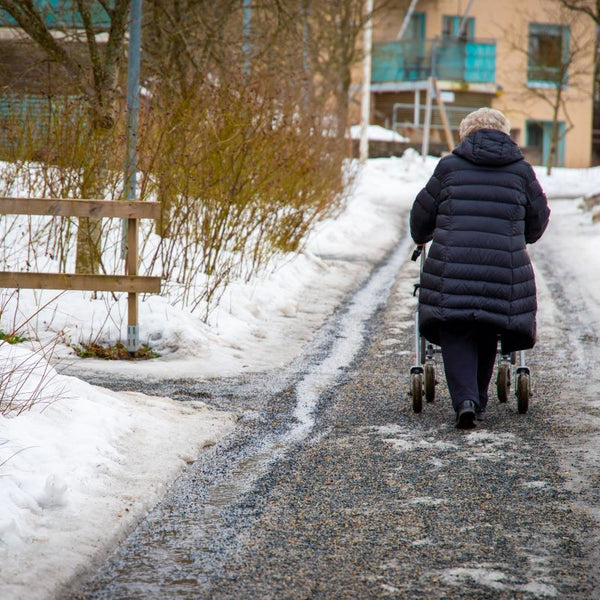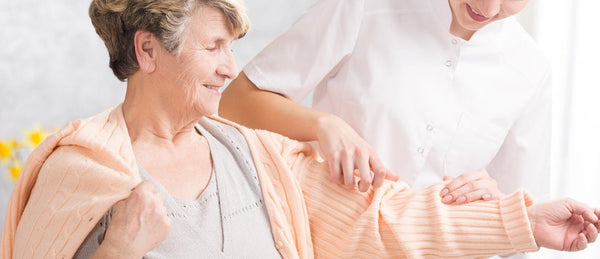More and more working professionals are finding themselves in a situation of balancing the demands of their careers with caregiving responsibilities.
Often referred to as the ‘sandwich generation’, these individuals can find themselves trying to balance professional goals and building their own family while providing care and support for their elderly loved ones.
In this article, we’ll explore some of the common challenges of juggling life, work and caregiving, providing advice on how to find a balance between various responsibilities and how carers also need to look after themselves and their personal life.
Jump to:
- Who are the ‘sandwich generation’?
- Challenges of being a carer and working full time
- Tips on juggling life, work and caregiving
- Self-care for carers
1. Who are the ‘sandwich generation’?
The term ‘sandwich generation’ describes a demographic group who find themselves squeezed between the responsibilities of caring for their elderly parents or relatives while also raising their own children and supporting younger family members. Essentially, they are ‘sandwiched’ between the caring duties towards both younger and older generations.
The adults who fall into the sandwich generation are generally between their 40s and 50s, commonly aspiring to reach the peak of their careers while managing their personal and family life.
Caring for ageing parents can be very demanding, physically, emotionally and financially, and, depending on the unique circumstances of individual families, the duties of sandwich generation might include:
- Managing the daily needs of their children, spouse, partner and household
- Financially contributing to the family living costs
- Maintaining a safe and healthy home environment
- Navigating a work-life balance
- Providing physical care, practical assistance and emotional support to elderly parents
- Managing health appointments for the elderly and coordinating with healthcare providers
In other words, balancing work and caregiving can feel overwhelming, and despite many people being very willing to take on caring responsibilities for elderly parents, it can also bring a significant amount of stress and limit opportunities for pursuing personal dreams and goals.
2. Challenges of being a carer and working full time
Let’s take a closer look at the challenges of being a carer and working full time. As already mentioned, juggling all these responsibilities requires a time commitment and frequently means that changes to the daily routine and lifestyle might be needed.
Below, we’ve compiled some of the most common challenges of balancing work and caregiving:
Time management
One of the biggest challenges of balancing work and caregiving is time management, making sure to plan your schedule effectively to cover everything you need to do at work, for your own family or household and for the elderly loved one that you’re also supporting.
Emotional stress and guilt
Managing the caregiving responsibilities while juggling professional commitments can also lead to feelings of stress and overwhelm. In fact, many individuals squeezed in between these responsibilities find themselves challenged by guilt and a fear of not meeting the expectations in either role. This can be on top of all of the things you do outside of work and caring, such as spending time with your immediate family, friends and looking after your own needs.
Career impact
Balancing work and caregiving responsibilities can be highly demanding and, in some cases, can interfere with career progression and professional development. Whether your care duties require you to reduce your working hours, take extended leaves of absence, take on less professional responsibility than you might do otherwise or mean that you’re tired, stressed and distracted when at work, these things can potentially affect your work stability as well as your income.
Physical exhaustion
It’s important to remember that meeting professional duties alongside caregiving responsibilities can be physically and emotionally demanding and lead to fatigue and exhaustion. From sleep deprivation to chronic stress and lack of self-care, all these factors can potentially result in compromised health and vulnerability to illnesses for those caring for others.
Financial strain
Last but not least, caregiving often comes with significant financial implications, which might include covering medical expenses, care services, or home modifications to accommodate the needs of elderly loved ones. Those caring for elderly loved ones might also have to cut back on regular work or take unpaid leave at times, which also has financial consequences.

3. Tips on juggling life, work and caregiving
On the other hand, caring for your elderly loved ones can come with a whole host of positives too, including strengthened relationships, increased empathy and a sense of fulfilment. Therefore, if you find yourself torn between professional commitments, personal life and caregiving responsibilities, it’s important to effectively communicate with the rest of the family members and if necessary, seek professional guidance to find a healthy balance.
These are some tips you might find useful when juggling life, work and caregiving:
Prioritise tasks and set boundaries
Effective planning is key to successfully balancing both professional and personal duties. By identifying your priorities in each area, you can allocate time to individual tasks while still protecting your time for leisure activities and rest.
Setting clear boundaries between work, personal life and caregiving can also help you maintain focus and improve productivity in each area.
Communicate effectively
Whether it’s open conversations with your employer, colleagues or family members, effective communication can be extremely helpful when managing your various life responsibilities and receiving sufficient support from your surroundings.
Set realistic expectations
When balancing work and caregiving responsibilities, it’s important to be realistic about your expectations and achievements. Instead of being a perfectionist, aim for small progress in different areas of your life and be open to adjustments along the way.
Utilise technology
Advanced technology tools, such as shared calendars, task management apps and online health services, can be game-changing when juggling life, work and caregiving, as they can assist you with forward planning and help you stay connected with your loved ones even when you’re not physically with them.
Personal alarms represent another great way of using technology to enhance your caregiving responsibilities and improve the safety of older adults, especially in situations when you can’t be physically with them.
Explore employee benefits and support programs
More and more companies in the UK recognise caregivers’ challenges and offer a range of benefits and flexible adjustments to help you effectively balance your commitments.
On 6th April 2024, the Carer’s Leave Act became law in the UK (but not Northern Ireland), which means that unpaid carers in employment now have the legal right to take up to a week of unpaid leave per year to help them fulfil caring responsibilities.
Some employers also offer Employee Assistance Programs (EAP) – a scheme designed to help employees during challenging times of their lives, offering counselling and other support services to improve their wellbeing and overall balance.
Support for carers
To learn more about available services when caring about elderly loved ones, you can read our article on what support is there for a family caring for the elderly.
Seek professional help
When someone is managing life, work and caregiving responsibilities, there may be times when you also need additional support and guidance. Seeking help from a professional carer can be highly beneficial to help you cover all the tasks while preserving your independence and personal life and perhaps giving you some respite.
Professional carers operate on both a temporary and long-term basis, depending on the specific needs of your family and elderly loved ones. The best way to seek professional home care is by contacting your local council, who will assess your situation and decide whether you’re eligible for funded homecare. Alternatively, you can make arrangements with a caregiving agency or private carer.
Moving parents into your home
If you are considering moving elderly relatives into your home to support their care needs, read our article exploring the considerations of multigenerational living.

4. Self-care for carers
Caring for elderly loved ones and providing them with a safe, comfortable environment can sometimes mean that it may be challenging to find time for your own relaxation and self-care. However, setting time aside for yourself and finding ways to unwind is essential when balancing work and caregiving, reducing stress and contributing to overall wellbeing.
Whether you prefer to allocate time for your hobbies, spending time alone or connecting with your social circle, there are a number of ways to recharge and combat the feelings that overwhelm you.
These are some specific practices to include in your routine to help maintain emotional, physical and mental wellbeing:
- Schedule weekly dedicated time for activities that bring you joy and relaxation
- Incorporate mindfulness exercises and relaxation techniques to reduce stress and improve mental balance
- Establish a regular bedtime routine to get sufficient rest and restore your energy levels
- Stay active and engage in regular physical activity that suits your preferences
- Keep connected with your family and close friends to share your experiences, seek advice and combat feelings of isolation
- Be willing to accept help and share responsibilities if possible, preventing exhaustion and potential burnout
- Stay vigilant to your physical health and mental health, attend regular check-ups and address any concerns as soon as possible
- Don’t hesitate to seek professional help or counselling if you’re struggling or feeling overwhelmed.
Overall, caring for elderly loved ones can be incredibly rewarding, deepening your family bonds and bringing a sense of fulfilment. However, balancing caregiving with other personal and professional commitments can be extremely challenging, taking a toll on individuals’ emotional and physical wellbeing.
Recognising the difficulties that come with these dual roles is essential to establish a healthy balance. From sharing the responsibilities with other family members and professional carers to recognising the importance of self-care, all these aspects can help you navigate the demands of a caregiver’s life while maintaining a healthy day-to-day routine.
If you’re looking for additional solutions to create a safer environment for your elderly loved ones, you can browse our selection of personal alarms and fall alarms. Designed to offer you peace of mind when you’re out and about, or offer help with independent elderly living, personal alarms can raise an alert in case of a fall or other emergency situations and contact our 24/7 Emergency Resolution Team.
Advice and guidance
If you have any questions or want more information on the best product for your circumstances, our Independent Living Advisors will be happy to help. You can call them on 0800 085 7371, Monday - Friday, 9am - 6pm.





